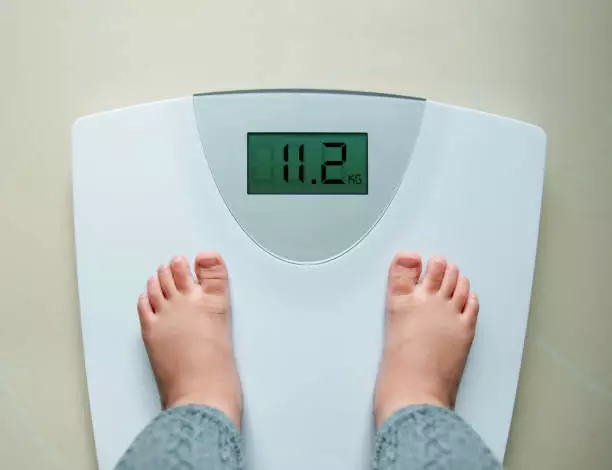What Causes Anorexia & How to Treat it? (2022 Updated)
Anorexia nervosa is an eating disorder in which people starve themselves because they have an irrational fear of gaining weight. Anorexia is a complex mental illness with many risk factors, making it challenging to diagnose and treat. An estimated 5% of those with Anorexia will die from the disease; however, early detection and treatment can increase that number.
Anorexia has the highest mortality rate of any psychiatric condition. People with Anorexia are much more likely than the general population to commit suicide or die from another cause of their eating disorder. If you think you might be suffering from Anorexia, know that help is available. Read on for more information about this eating disorder and how to get help if you need it.
What Causes Anorexia?
Anorexia is a complex mental illness that is poorly understood. There is no single cause of Anorexia. However, many researchers believe that a combination of genetic, psychological and environmental factors contribute to Anorexia. Genetic factors may be related to certain personality traits, such as perfectionism, fear of failure and anxiety. Biological factors, such as low serotonin levels, may contribute to mood disorders, increasing the risk of an eating disorder.
Psychological factors contributing to Anorexia include low self-esteem, perfectionism, anxiety and difficulty coping with life stresses. Environmental factors may include cultural expectations of body shape and weight, family stress or traumatic experiences. Anorexia may be related to anxiety, depression or obsessive-compulsive disorder.
Stress may lead to unhealthy eating patterns, including extreme dieting, overeating or Anorexia. Eating disorders often co-occur with other mental illnesses, including anxiety, depression and substance use disorders. Anorexia may be related to self-harm, risk-taking behavior and other impulsive behaviors.
Signs and Symptoms of Anorexia
1. Weight Loss

Individuals with Anorexia lose weight. You may lose muscle and fat tissue along with any excess weight. If you have Anorexia, you may lose weight rapidly, or you may lose weight slowly over a long period of time.
2. Dieting

Anorexic patients tend to be obsessed with dieting and restricting their caloric intake. “Bulimic” eating: Anorexic individuals may also binge eat or eat large amounts of food while feeling they shouldn’t be eating, followed by purging, either by vomiting, using laxatives or having diuretic-induced diaphoresis or excessive sweating.
3. Excessive Exercise

Some people with anorexia use exercise to control their weight, while others may avoid it completely.
4. Low Energy

Anorexia can cause fatigue and weakness.
5. Underweight

People who have Anorexia are often too thin, even when eating enough calories to maintain weight.
How to Treat Anorexia?
There are many treatment options for Anorexia, including both inpatient and outpatient programs. Treatment approaches vary based on a person’s individual needs and can include psychotherapy, nutritional guidance and medications.
- Cognitive behavioral therapy (CBT): This form of therapy is used to treat many mental health problems, including Anorexia. It works by changing the way you think and behave. You can also practice CBT at home.
- Family-based therapy: This therapy focuses on the loved ones of someone with an eating disorder. It teaches the family members how to interact with and support the person with an eating disorder.
- Nutritional rehabilitation: Nutritional rehabilitation helps anorexic patients recover from their eating disorder. Treatment varies based on the severity of the eating disorder, as well as the person’s individual needs.
- Medications: Doctors may prescribe medications to help treat coexisting conditions associated with Anorexia.
- Other treatments: Other treatments for Anorexia may include hospitalization, inpatient programs, electroconvulsive therapy and family therapy.
How to Detect if Someone has Anorexia?
Anorexia is best diagnosed by a professional. To do this, a doctor will ask you questions about your eating habits, including how often you eat and what you eat. You may also be asked to provide information about your weight and body image. It’s important to be honest, and open with your doctor.
If you think you may have an eating disorder, talk with your doctor or seek out a therapist who can help you. You may be given a test called the Eating Disorder Examination. This test looks at your eating habits and how they affect your life. It’s important, to be honest with the person administering the test. If you think you have an eating disorder, seek medical help.
How to Deal with an Anorexia Patient?
- Be patient: Anorexic patients have mental illnesses, and recovery takes time. Be patient with yourself and with others as you work towards recovery.
- Keep appointments: Anorexic patients have a hard time keeping appointments. If you need to see a doctor, set up several appointments in advance.
- Give yourself permission: You may be tempted to deny help if you don’t think you need it. However, you should give yourself permission to get help.
- Set goals: Anorexic patients may have difficulties setting goals. If this is the case, try to set small goals for yourself.
- Reward yourself: You deserve a reward for your progress, and you should reward yourself for taking steps towards recovery.
Conclusion: Signs of Anorexia
Anorexia is a serious mental illness that can be fatal if it isn’t treated. If you or someone you know is living with an eating disorder, it is important to seek treatment as soon as possible. Early detection and treatment can increase the chances of a full recovery.
If you are concerned that you or someone you know may be suffering from an eating disorder, the best thing you can do is talk with them about your concerns and get them the help they need.
Source –


